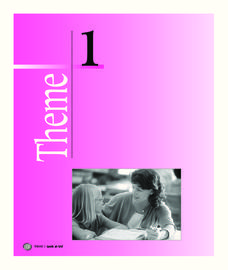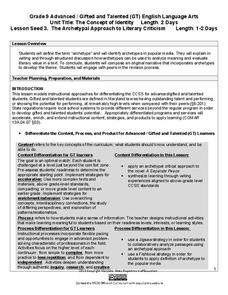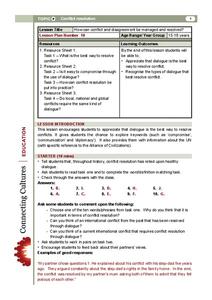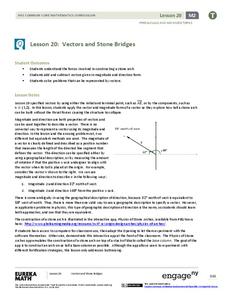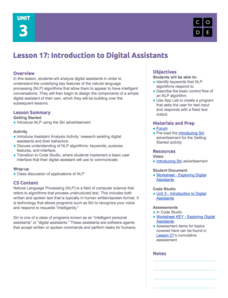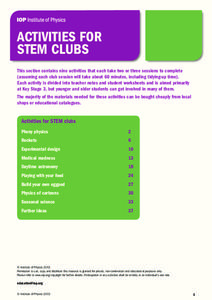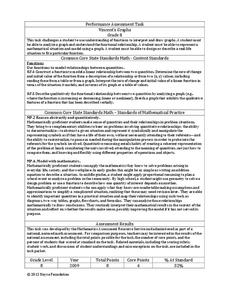College Board
AP® English Language: Reading and Writing Analytically
How can teachers ensure their pupils are well prepared for the AP® English exam? The reference material is a good place to start! Educators read seven essays detailing best practices for teaching scholars to read critically and write...
Meadows Center for Preventing Educational Risk, University of Texas at Austin
Lesson 12 - Ed Suffix with Unchanging Base Words
Understanding different verb tenses begins with knowing how to decode words. A lesson on the -ed suffix with unchanging base words introduces readers to the past tense. Teachers present the skill with oral reading and spelling...
Houghton Mifflin Harcourt
Look at Us!: Extra Support Lessons (Theme 1)
Support struggling learners and focus on the alphabet with the three weeks of activities and materials provided here. Each day, learners review some letters and practice others in depth. They work on rhyming, practice new words, and...
Worchester Polytechnic Institute
Interactive Laboratory Activities for Secondary Education
Do you think the lab smells like rotten eggs? Sorry to hear about your sulfering. A set of five experiments covers many different topics including seasons, gravity, food, precipitation, and photosynthesis. Though not presented as a...
American Chemical Society
Energy Levels, Electrons, and Ionic Boding
Learners see how electrons are transferred in the bonding of NaCl. They then create models of NaCl using styrofoam balls and toothpicks to assist them in explaining the formation of ions and ionic bonding.
American Chemical Society
Can Liquids Dissolve in Water?
How does food coloring work? Classes watch a demonstration showing liquids dissolving in liquids. In groups, they then explore the ability of other liquids to dissolve in water (alcohol, mineral oil, and corn syrup) by setting up and...
American Chemical Society
The Periodic Table and Energy-Level Models
Teach your class to think of electrons as tiny packets of energy that travel in waves. Through a short video and diagram, participants see how electrons are located around the nucleus of an atom. They then get into groups and try to...
Centers for Ocean Sciences
Ocean and Great Lakes Literacy: Principle 1
Is your current lesson plan for salt and freshwater literacy leaving you high and dry? If so, dive into part one of a seven-part series that explores the physical features of Earth's salt and freshwater sources. Junior hydrologists...
Chicago Botanic Garden
Historical Climate Cycles
What better way to make predictions about future weather and climate patterns than with actual climate data from the past? Young climatologists analyze data from 400,000 to 10,000 years ago to determine if climate has changed over...
Curated OER
Write to a Member of Congress
Students discover how to identify and contact their local Representative. They can send an email or a regular letter to their Representative voicing their concerns. They share with the class any responses.
Curated OER
The US Constitution Graphic Organizer
If your learners could use some help understanding the US Constitution, bring in a worksheet that includes reference material and opportunities for paraphrasing. Kids fill in the blanks to reflect their own understanding of the...
Maryland Department of Education
The Concept of Identity Lesson 3: The Archetypal Approach to Literary Criticism
As class members continue their study of approaches to literary criticism, readers examine the symbolism and archetypal patterns in John Knowles' A Separate Peace, and how these parallels are used to develop a theme...
University of the Desert
How Can Conflict and Disagreement be Managed and Resolved?
As you explore the meaning of cultural understanding and diffusion with your learners, discuss how dialogue can play a role in resolving conflicts based on misunderstanding. Examine keywords such as compromise, communication, and...
EngageNY
Modeling a Context from Data (part 2)
Forgive me, I regress. Building upon previous modeling activities, the class examines models using the regression function on a graphing calculator. They use the modeling process to interpret the context and to make predictions...
EngageNY
Vectors and Stone Bridges
What does it take to build a stable arch? Pupils apply vectors and physics as they examine arched bridges and their structural integrity. They use vectors to represent the forces acting on the stone sections and make conclusions based on...
Code.org
Introduction to Digital Assistant Project
How does a computer recognize voice commands? Scholars learn about digital assistants and natural language processing (NLP) algorithms in the ninth lesson plan of the series. They begin building a simple digital assistant and work on...
PricewaterhouseCoopers
Credit and Debt: Decisions, Decisions...
Borrowing money seems like a great idea until you are in over your head. High schoolers learn the benefits and risks associated with credit and how to be a responsible borrower. More than just credit cards, they...
Curriculum Corner
Data Binders
Here is a great resource to support students you have identified early on as needing behavioral or general learning support, particularly if you are practicing a Response to Intervention (RTI) approach. This data binder...
Institute of Physics
Activities for STEM Clubs
Need some support or ideas of how to entertain middle schoolers or what clubs to bring into your school? Let this excellent 40-page resource guide with links and step-by-step directions on STEM activities guide your decision.
Curated OER
Discovering Pi/Welcome to Pi Day
Students explore pi. In this circle measurement lesson, students define and identify radius, diameter, circumference, and perimeter. Students work in groups to measure several plastic lids and record their findings. Students compare the...
Curated OER
How We're Connected
Students take a survey in order to find out how they live in relationship to the environment. They take the time to investigate the differences between a need and a want. This is done as part of the self-assessment. Students also study...
Virginia Department of Education
Synthesizing to Support a Thesis- Big Picture Emphasis
Help your researchers as they begin to develop a topic for research with these worksheets. Included are two nicely designed graphic organizers that assist students in narrowing and researching their topic, and an efficient...
Inside Mathematics
Vencent's Graphs
I like algebra, but graphing is where I draw the line! Worksheet includes three multiple-part questions on interpreting and drawing line graphs. It focuses on the abstract where neither axis has numbers written in, though both are...
College Board
Why Variances Add - And Why It Matters
Why is adding variance important? A lesson outline defines a variance theorem and how it affects the data statistics. The instruction shows scholars the importance of considering the variance of data and why it requires independence.


